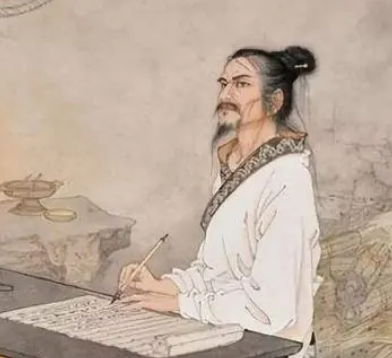In Chinese history, Liu Bowen is a legendary figure. He was not only a founding figure of the Ming Dynasty, but also a renowned feng shui master. Legend has it that Liu Bowen once severed the dragon veins of the world to consolidate Zhu Yuanzhang's rule. However, the reason why he did not sever the dragon vein of Changbai Mountain has become a historical mystery. This article will explore the story behind this legend and possible reasons.

I. The Legend of Liu Bowen Severing the Dragon Vein
According to folk legends, Liu Bowen, in order to ensure the long-term stability of the Ming Dynasty, used his profound knowledge of feng shui to search for and sever nine dragon veins. These dragon veins were believed to be important geographical features that gave birth to the aura of emperorship, and severing them could prevent other forces from rising up to challenge the rule of the Ming Dynasty. However, these stories mainly originated from later literary works and folk legends, and are not strictly historical facts.
II. The Special Status of Changbai Mountain
Changbai Mountain, located in the northeast of China, is a mountain range with high cultural and religious significance. It is not only the birthplace of multiple rivers but also a sacred place for ethnic minorities such as the Manchu. Historically, Changbai Mountain was believed to be the location of "Tianchi Lake" and had extraordinary geographical and cultural significance. Therefore, even if Liu Bowen did have the behavior of severing dragon veins, Changbai Mountain may have been preserved due to its special status.
III. Possible Reasons Why Liu Bowen Did Not Sever Changbai Mountain
From a historical and cultural perspective, there may be several reasons why Liu Bowen did not sever Changbai Mountain. Firstly, Changbai Mountain's geographical location is relatively remote, and its feng shui influence on the Central Plains region is relatively small. Secondly, Changbai Mountain has an irreplaceable status in terms of ethnicity and culture, and destroying it may cause unnecessary ethnic conflicts. Finally, over time, the story of Liu Bowen severing dragon veins may have been more mythologized, and the actual historical behavior may not have been as exaggerated.
IV. Conclusion
Although the story of Liu Bowen severing dragon veins is widely circulated, there is a lack of conclusive historical evidence regarding its authenticity and specific actions. The reason why Changbai Mountain was not severed may be due to its unique geographical, cultural, and ethnic significance, as well as its loose political relationship with the Central Plains region. Regardless, Liu Bowen's wisdom and achievements, as well as the mystery and sanctity of Changbai Mountain, have been deeply imprinted in the memory of Chinese culture and history.
Disclaimer: The above content is sourced from the internet and the copyright belongs to the original author. If there is any infringement of your original copyright, please inform us and we will delete the relevant content as soon as possible.































